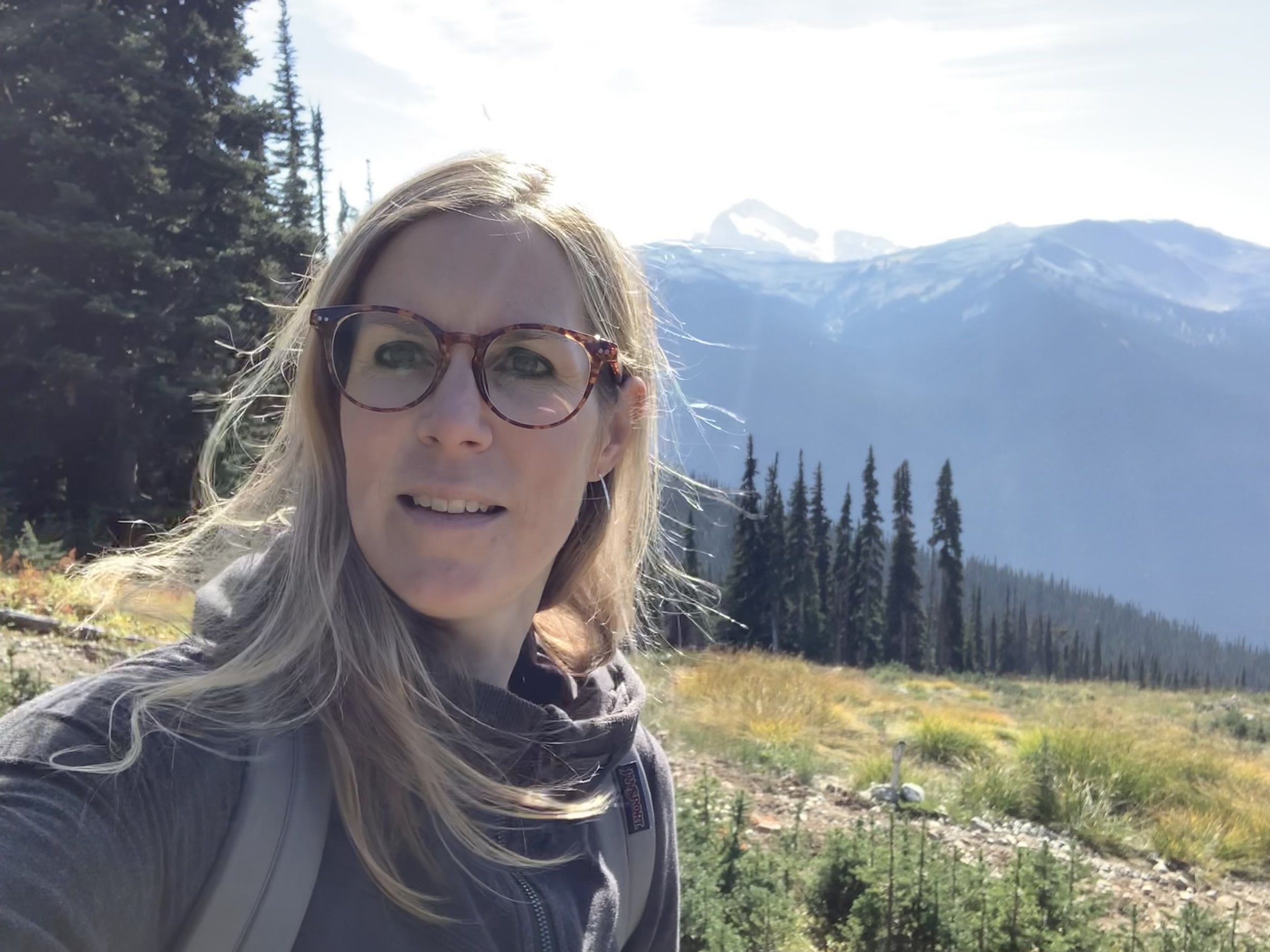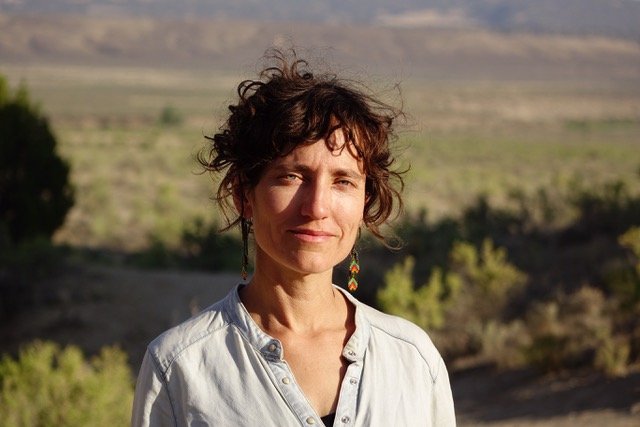
SALT for Climate
Sensemaking, Action, and Leadership Training (SALT) to meet an unknown future.
Fall 2024 - Spring 2025
We begin with some good news.
Let’s imagine a different kind of beginning for a different kind of offering. Although there are plenty of stories that warn of a dystopian climate future, it is also true that Canada has made strong progress towards decarbonizing the economy. New clean technologies and systems exist, and offer viable pathways to a net-zero society.
And yet, making such pathways real remains elusive. Despite good intentions and solid solutions, even excellent climate-action plans can get stymied and stalled. With such good plans, and a host of technologies that can deliver on them, why does climate action remain slow?

The Problem
Climate is not a tech problem.
It’s a challenge of transformative change, and transformation is hard because it includes change in mindsets and culture, as well as tech and systems. While we excel on the climate tech side, we have not yet plumbed the depths of the human dimensions, nor found the social tipping point to shift our systems towards sustainability.
In different corners of the country and beyond, radically different social perceptions exist about what kind of problem climate change is and the perceived risks it presents society – from an impending collapse that needs our best efforts to avert, to an overblown agenda advanced by politicians who don’t account for regular people. And everything in between.
At the same time, climate change impacts are beginning to be felt more and more each year—abnormal heat, strange weather patterns, severe wildfires and flooding, and more. We know that climate change is meshed with other planetary boundaries that support life on earth, and that when ecological tipping points are surpassed, the impacts cascade. A bit like falling over the edge of a waterfall. The magnitude of what that means for our future can be upsetting. Even climate action taken today to avert these impacts can itself feel disruptive to people—especially in an already difficult economy—and many resist or lash back against taking up the climate actions that are called for.
As a result, climate change easily becomes politicized and polarized.
The resulting cacophony of views is disorienting. While climate activists protest big oil, climate dismissives protest big government. While some frame emissions as a threat to economic stability, others frame climate action as the threat to the economy, specifically to the very industries that made Canada what it is. While some experience climate anxiety, worrying about a uncertain future, fairness, or job loss in the transition; still others exhibit no concern at all.
These mixed, often polarized views can make potential social tipping points become social stalling points on the pathway to net-zero.
In the midst of this, climate communications can seem weak or misdirected in addressing these fractured social perceptions. Climate stories of doom and gloom seem to foster apathy and backlash more than they ignite agency. Framing climate change as a technical problem puts the focus on convincing people about the technical solutions or regulating them with policy levers.
And yet, we can’t message or regulate our way out of an imminent climate collapse.
Rather, climate engagement ought to be about wayfinding through changes in culture, identity and livelihoods.

The Invitation
Humanity has not yet used the whole toolkit on climate. We have come a long way innovating the hard tech, but not the social/human tech, or “soft tech.”
To advance climate action, we must learn the deep skills of attending to the human dimensions of climate change, including the social, emotional and psychological. This inner arc of developing ‘in here’—in our hearts and minds— in turn assists us in addressing the climate challenge ‘out there.’ The integration of hard and soft tech will be a gamechanger for climate.
SALT (Sensemaking Action and Leadership Training) for Climate is an invitation to come into good company with other climate leaders, policy makers, organizers and activists to hone and integrate the inner tools for climate action, building the social, emotional, and awareness competencies to effectively engage around climate change.
SALT for Climate invites the imagination, the heart and the head into a robust conversation that can be translated into new and innovative pathways forward.
Just as the right amount of salt brings forward the existing flavours in cooking, SALT for Climate aims to be a catalyst to advance the existing potential of effective climate action.
The sensemaking challenges of climate require more than just better communications, lip service engagement, or more regulation. With key climate actors in BC and Canada, we advance the skills to engage the full human dimensions of the climate challenge towards new conversations, possibilities and action.
This Includes…
Better connecting the climate-action agenda with what people value and care about in their daily lives.
More deeply and empathetically engaging populations on the climate challenge, so to foster a social mandate for climate action and to support the design of more resonant climate policies.
Facilitating the integration of difficult emotions regarding climate to better support people through feelings of helpless, fear, frustration, and uncertainty, and towards feelings of agency, optimism, creativity, and a sense that you matter.

The Offering
SALT for Climate offers a multi-course meal to support you on your learning and action journey to develop the social, emotional, and consciousness capacities for a holistic response to climate change. We provide climate leaders across sectors in British Columbia and beyond the following dialogue and training opportunities, free of charge with generous funding from MakeWay Foundation:
SALT Tasters
(1 Hour Virtual)
Climate Shadow in the Perceived Dichotomy of Jobs vs Climate
October 1, 2024 | 12-1pm PST
Integrating Worldviews and Emotions of Climate Change
November 5, 2024 | 12-1pm PST
Wayfinding Climate
Leadership Skills and Knowledge for Navigating the Climate Crisis
Facilitated dialogues and training carried out as a 4-part series, monthly. These 2.5-hour hybrid sessions from February to May explore the what and how of a deeper, holistic climate communications and engagement. Sessions will include:
You Matter | How to Work with Climate Emotions and Ensure People Feel They Matter
February 6th, 2025 | 9 - 11am PST
Worldviews | Transformation and Translation
March 6th, 2025 | 9 - 11am PST
Values | How to Connect with What People Value
April 10th, 2025 | 9 - 11am PST
Climate Change Discourses | Framing Climate Action in Ways that Work
May 8th, 2025 | 9 - 11am PST
SALT for Climate Wisdom Leadership Training
These offerings will lead up to a SALT for Climate Wisdom Leadership Training starting in January-June 2025. Join a small cohort of other climate leaders in a six-month training, involving two in-person retreats and monthly virtual sessions, mentoring and executive coaching. More information soon.
Sign up to be notified when SALT program registration opens and to be added to our mailing list.
Who We Are
Dr. Gail Hochachka, PhD, is a researcher, thought-catalyzer, facilitator, and coach. She has pursued a unique area of research on the human dimensions of climate change: on the diverse ways people make meaning about climate change, on how to find shared meaning in diverse settings, and on how to accelerate climate action in a transformative manner. She does speaking events and convenes novel conversations amongst experts, inviting collaborative wayfinding on the climate challenge. Gail also teaches graduate courses at UBC, such as on Climate Communications and Engagement, and she is an associate-level Integral Coach. With SALT for Climate, she seeks to move research into practice, at the very leverage points where greater climate action can happen.
Lisa Genki Gibson is a systems change consultant, educator, facilitator, and coach, with a background in social justice, gender and development, and community engagement across multiple, complex issues. She specializes in working with individuals, organizations and multistakeholder spaces to embed systemic change, transform belief systems, and construct alliances across diversity towards clarified action. As a Zen teacher in the Soto Zen lineage, Lisa also brings invaluable dexterity and nuance in working with human interiority to the project team.
Lisa and Gail began their collaboration many years ago, such as co-founding Drishti-Centre for Integral Action in Vancouver in 2003, designing and co-delivering Leading From Within, an integral leadership for sustainability program in Nigeria (2009-2013) and also in a capacity-building project in Peru (2009). In 2023, Gail and Lisa began to combine their skillsets into SALT for Climate offerings with half-day workshops with STAGES International Summer Program on Finding One’s Own Soul-Centric Climate Action and CHIE Brazil on Climate Wisdom: Deepening Climate Change Engagement for Improved Impact.




